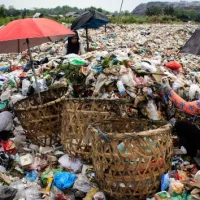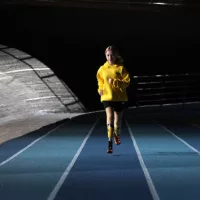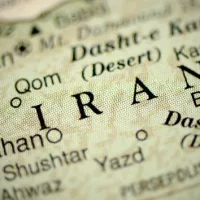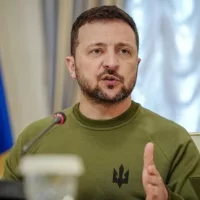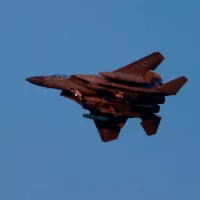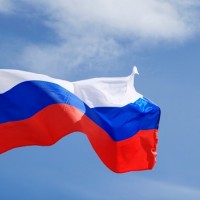
 iStock/Thinkstock(MOSCOW) — The International Olympic Committee has voted not to impose a blanket ban on Russia’s participating in this summer’s Olympics in Rio de Janeiro over the country’s state-directed cover-up of doping by its athletes.
iStock/Thinkstock(MOSCOW) — The International Olympic Committee has voted not to impose a blanket ban on Russia’s participating in this summer’s Olympics in Rio de Janeiro over the country’s state-directed cover-up of doping by its athletes.
In a statement released Sunday, the IOC declined to impose a total collective ban as recommended earlier by the World Anti-Doping Agency (WADA), instead requesting that the international federation for each Olympic sport should evaluate which Russian athletes can be considered clean enough to compete.
Those athletes from Russia’s national Olympic team wishing to compete will now have to pass examination by the international federation of their sport, meeting criteria set by the federations themselves that will prove they are clean. No Russian athlete who has ever been punished for doping will be allowed to compete either.
That decision means that it is very likely that at least some of Russia’s 387 athletes from its national Olympic team will compete in Rio, though there remain steep practical challenges to their passing individual evaluations, with the games just two week away.
Within hours of the vote, the International Tennis Federation announced that it believed seven tennis players in Russia’s Olympic team had enough clean tests to meet the IOC criteria.
Russian officials immediately welcomed the IOC move as meaning the country would now take part in the Olympics. Russia’s sports minister, Vitaly Mutko, told a news conference he was certain that the majority of Russian athletes would meet the criteria.
“We appreciate the IOC decision,” Mutko said. “I think in the situation that we find ourselves in, it’s an objective decision.”
The IOC’s ruling though is controversial, ignoring WADA’s recommendation that the scale of Russia’s state cover-up meant it should be excluded from the games. Some critics said that the IOC had dodged its responsibility to punish Russia for what they said was an unprecedented effort to undermine fair play at the Olympics.
“The decision regarding Russia participation and the confusing mess left in its wake is a significant blow to the rights of clean athletes,” Travis T. Taygart, the head of the U.S. anti-doping agency said in a statement. “It is so frustrating at this incredibly important moment, they would pass the baton to the federations who may lack the adequate expertise or collective will to appropriately address the situation within the short window before the games.”
Matthew Pincent, a British four-time Olympic champion rower, on Twitter called the decision “a cop out”.
The IOC, however, said it was intended to give clean Russian athletes a chance to compete while still punishing Russia for its system. Speaking in a conference call to reporters, IOC president Thomas Bach said the decision had been unanimous, with one abstention. He said the decisive factor had been the fates of athletes who would have been punished by a blanket ban despite having clean records.
“At the end of the day you have to be able to look into the eyes of the individual athlete concerned by your decision,” Bach said.
“The message is very clear. They have to assume a collective responsibility for such a system. On the other hand, it is a message of encouragement for the clean Russian athletes, that they have the chance to show they are clean and to participate in the Olympic games.”
Bach insisted that the criteria that federations imposed would be extremely rigorous, and the IOC noted that Russian athletes competing in Rio would be subject to additional doping testing. Refusing to allow participation by any Russian athletes ever punished for doping, even those who had served their sentences, is an unprecedented restriction.
Bach said that he would be “absolutely comfortable and fine” competing alongside any Russian athletes at Rio.
There had been opposition to a blanket ban, including from a number of international federations, such as the International Gymnastics Federation, and it appeared some federations would welcome the IOC’s decision.
The decision in part followed the model already imposed by the IOC around Russia’s track and field athletes, who were barred totally from the Olympics by their international federation, the International Association of Athletics Federations in June. The IOC then decided that those athletes able to meet criteria imposed by the international federation would be allowed to compete.
The federation set extremely tough criteria, with only one Russian athlete so far successfully passing it, long jumper Daria Klishina, who trains in the United States.
The IOC guidelines for the federations left more room, requiring that the athletes present enough “international tests.” Unlike those in track and field, other Russian athletes have been competing regularly outside Russia and many will have a large body of tests they can show.
Russian officials said Sunday’s IOC vote appeared to leave the ban on Russian track and field athletes’ unaffected, meaning the country’s presence at the Olympics will still be severely diminished. However, some of its most successful athletes, such as its gymnasts, are now very likely to compete.
Alexander Zhukov, the head of Russia’s national Olympic Committee said Russian sports federation officials had already been working with international federations, but acknowledged there was little time left to complete the vetting. Zhukov told Russian state TV that Russian officials had to start Sunday preparing their athletes’ applications.
The IOC decision brought an uncertain end to a saga that has lasted for months, as successive news stories and international reports have uncovered the system developed by Russia to allow its athletes to dope. A WADA investigation first in November and then a second this month, showed how Russia’s sports ministry worked with its F.S.B. security service to falsify hundreds of positive doping tests, in particular at the 2014 Sochi Winter Olympics.
Russia has always denied it ran a state-controlled system of doping, claiming the investigations and the calls for it to be banned were part of a U.S.-led plot. For months, Russian officials have zigzagged between denouncing the doping allegations as baseless lies and claiming they would fix them.
Sports minister Mutko has even at points claimed that Russia was defending world sport, saying it was resisting efforts to politicize it.
Though uncertainty remained around how many Russian athletes would now make it through the federation evaluations in time, many officials and coaches seem to believe the risk they would be barred was now virtually at an end.
“I’m very glad that it’s turned out this way,” Irina Viner-Usmanova, a senior coach of Russia’s gymnastics team, said on Russian state television.
Copyright © 2016, ABC Radio. All rights reserved.






